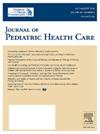Defining Priorities for Canadian PICU Family Presence Policies Under Changing Contexts: A Qualitative Focus Group Study
IF 1.8
4区 医学
Q2 HEALTH POLICY & SERVICES
引用次数: 0
Abstract
Introduction
Recognizing the importance of parental presence for seriously ill children's well-being, many pediatric intensive care units (PICUs) have adopted policies encouraging family presence. However, PICU family presence policies remain varied, with gaps in policy development and implementation across Canadian hospitals. We aimed to determine patient, family, clinician, and policymaker-identified priorities for family presence policies under baseline and emergency (e.g., pandemics, disease outbreaks) contexts.
Methods
Between January and August 2023, we conducted focus groups with PICU youth, families, clinicians, and policymakers. Using the Theoretical Domains Framework (TDF) and inductive analysis, we explored key themes.
Results
Seven focus groups included youth (n = 4), family members (n = 7), clinicians (n = 14), and policymakers (n = 4). Nearly all TDF domains were significant, leading to three primary categories: policy development (e.g., transparency, adaptability), implementation (e.g., communication, roles), and future lessons.
Discussion
Key priorities included bedside access for two people, sibling presence, and flexible, equitable policies developed with diverse community engagement.
在变化的背景下确定加拿大PICU家庭存在政策的优先事项:一项定性焦点小组研究。
认识到父母陪伴对重病儿童健康的重要性,许多儿科重症监护室(picu)采取了鼓励家庭陪伴的政策。然而,PICU家庭存在政策仍然各不相同,加拿大各医院在政策制定和实施方面存在差距。我们的目的是确定患者、家庭、临床医生和政策制定者在基线和紧急情况下(如流行病、疾病暴发)确定的家庭存在政策的优先事项。方法:在2023年1月至8月期间,我们对PICU青少年、家庭、临床医生和政策制定者进行了焦点小组调查。利用理论领域框架(TDF)和归纳分析,我们探讨了关键主题。结果:7个焦点小组包括青年(n = 4)、家庭成员(n = 7)、临床医生(n = 14)和政策制定者(n = 4)。几乎所有的TDF领域都是显著的,导致三个主要类别:政策制定(如透明度、适应性)、实施(如沟通、角色)和未来的教训。讨论:关键优先事项包括两个人的床边使用权,兄弟姐妹的存在,以及在不同社区参与下制定的灵活、公平的政策。
本文章由计算机程序翻译,如有差异,请以英文原文为准。
求助全文
约1分钟内获得全文
求助全文
来源期刊

Journal of Pediatric Health Care
NURSING-PEDIATRICS
CiteScore
3.40
自引率
10.70%
发文量
140
审稿时长
24 days
期刊介绍:
The Journal of Pediatric Health Care, the official journal of the National Association of Pediatric Nurse Practitioners, provides scholarly clinical information and research regarding primary, acute and specialty health care for children of newborn age through young adulthood within a family-centered context. The Journal disseminates multidisciplinary perspectives on evidence-based practice and emerging policy, advocacy and educational issues that are of importance to all healthcare professionals caring for children and their families.
 求助内容:
求助内容: 应助结果提醒方式:
应助结果提醒方式:


